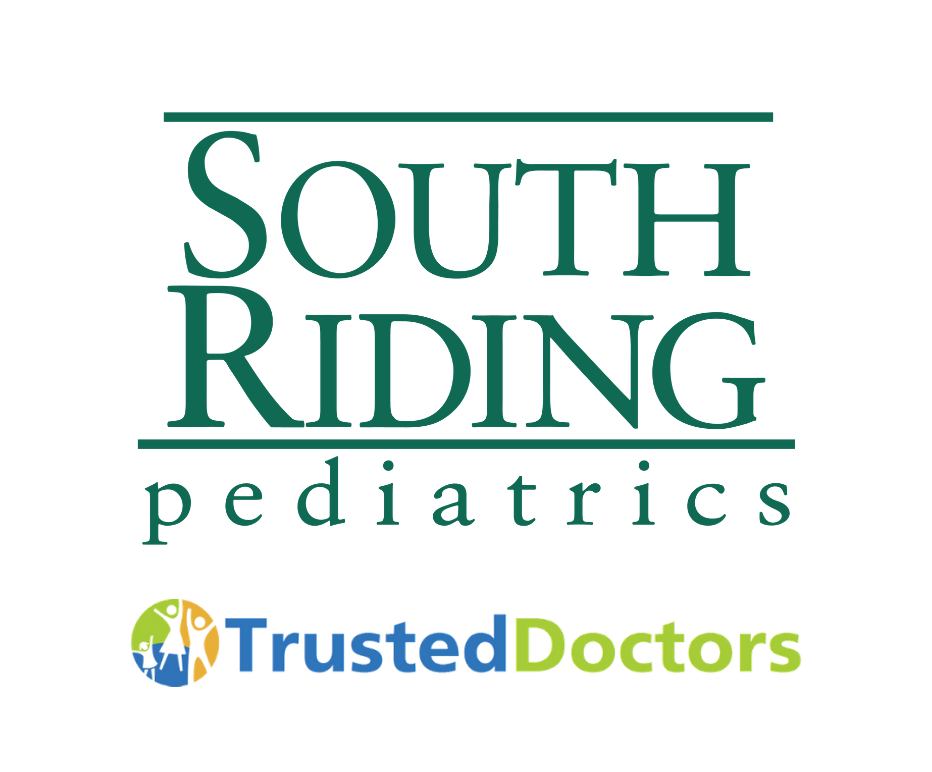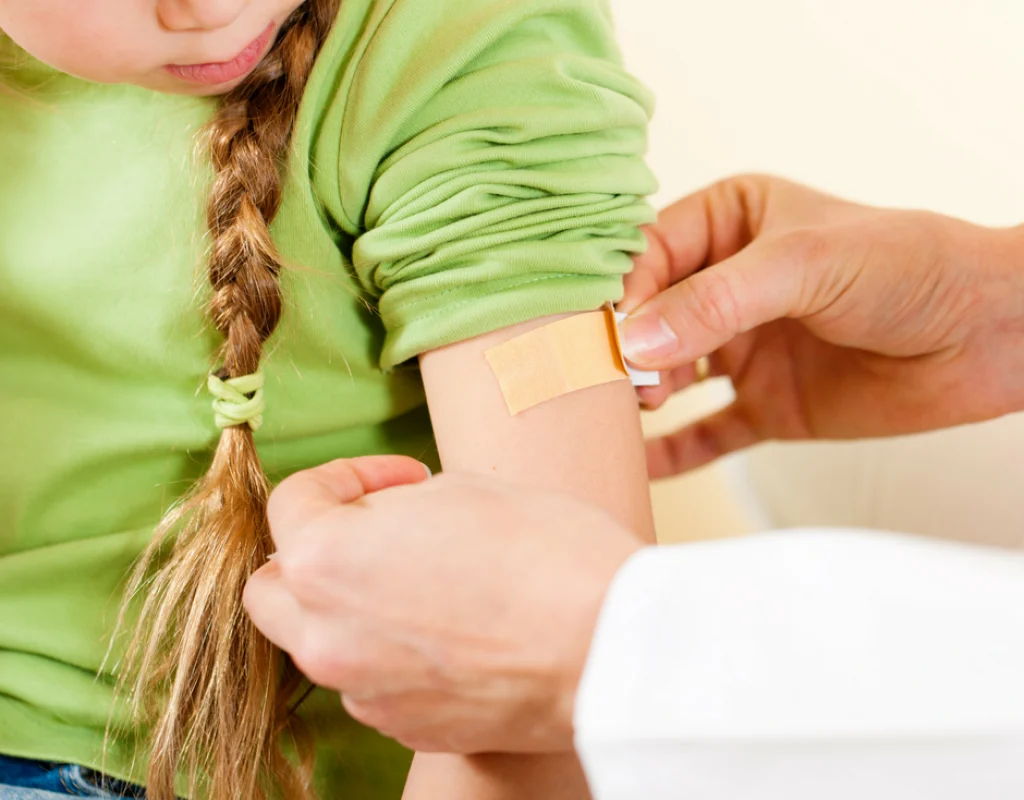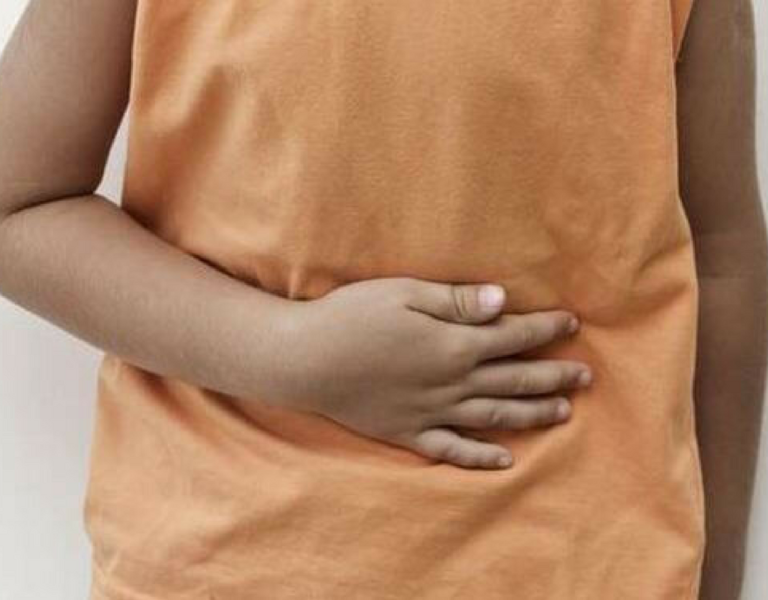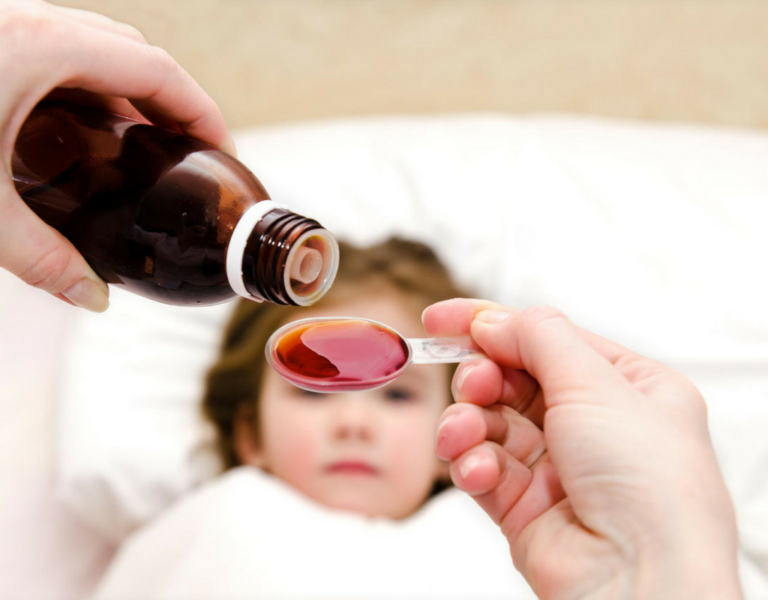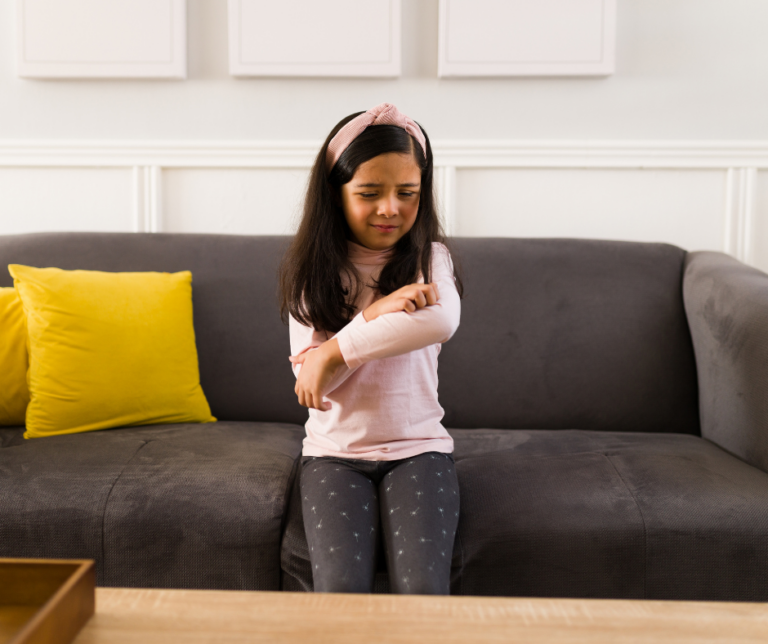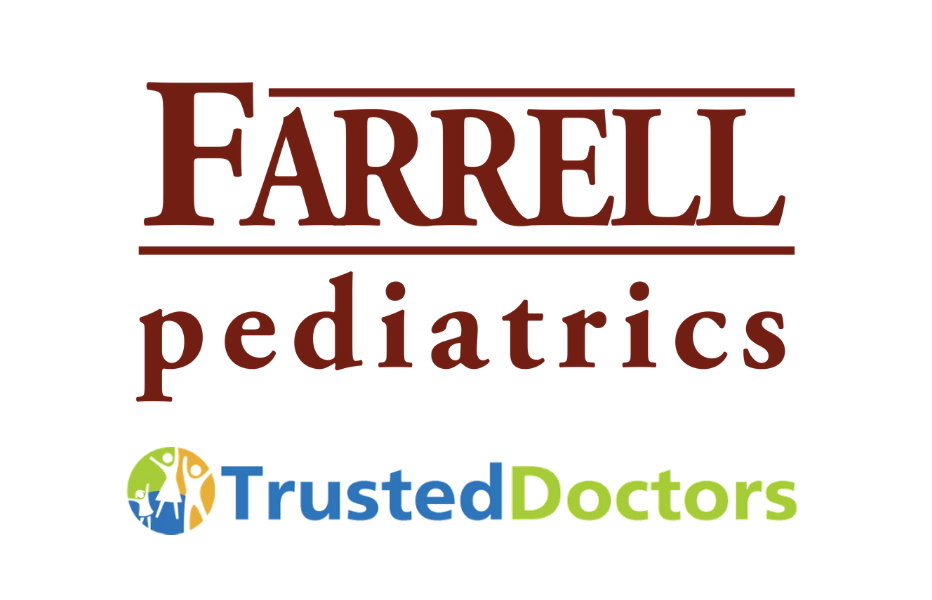We get a lot of questions about vaccines from parents. Here are some answers to some of the most common questions.
Why should I vaccinate my child?
The use of vaccines has led to major improvements in child health over a relatively short period. Immunizations have helped children stay healthy for more than 50 years. Many of the infectious illnesses you or your parents had as children, from chickenpox to polio to measles, no longer affect most children today. If you follow the immunization guidelines recommended by the American Academy of Pediatrics (AAP), you can help make your child healthier than was ever possible in earlier generations. Vaccines are safe and they work. In fact, serious side effects are no more common than those from other types of medication such as antibiotics and fever reducers and pain relievers. Vaccinations have reduced the number of infections from vaccine-preventable diseases by more than 90%!
Why should my child get the poliovirus vaccine?
A little history: A 1916 polio epidemic in the United States killed 6,000 people and paralyzed 27,000 more. In the early 1950’s there were more than 20,000 cases of polio each year. Polio vaccination was begun in 1955. By 1960 the number of cases had dropped to about 3,000, and by 1979 there were only about 10. No wild polio has been reported in the United States for over 20 years. BUT the disease is still common in some parts of the world. It would only take 1 case of polio from another country to bring the disease back if we were not protected by vaccine. If the effort to eliminate the disease from the world is successful, someday we won’t need polio vaccine. Until then, we need to keep getting our children vaccinated.
I lived through chickenpox as a kid, why vaccinate my own child against it? Would it prevent shingles later in life?
While most people have survived chickenpox (varicella), before the vaccine, about 12,000 people were hospitalized for chickenpox every year due to complications such as pneumonia and encephalitis (brain infection). About 100 people died from the disease. The chickenpox vaccine protects most children from getting chickenpox. Since the vaccine was licensed in 1995, millions of doses have been given to children in the United States. Many studies show the vaccine is safe and effective. Research is being done to see how long protection from the vaccine lasts. Though the vaccine doesn’t guarantee you won’t get chickenpox or shingles, it can reduce your chances of complications and reduce the severity of the disease.
